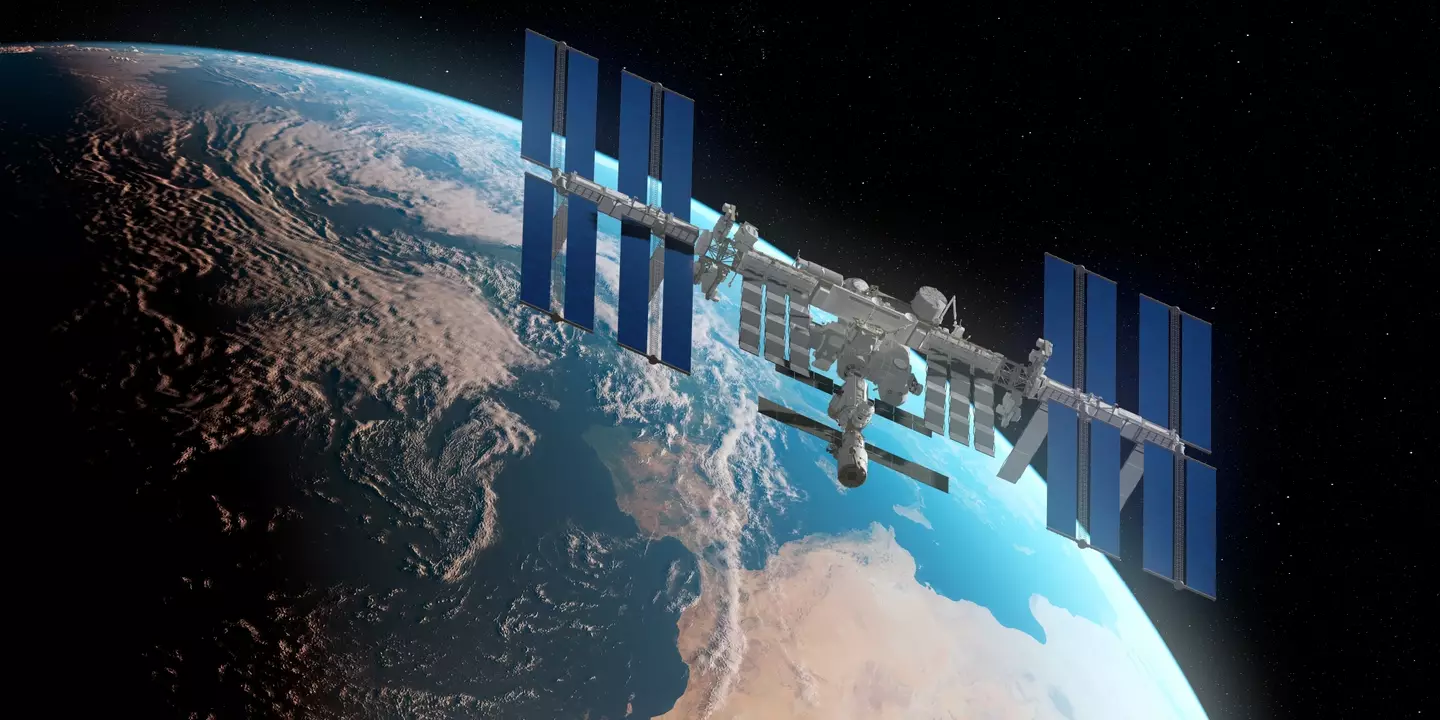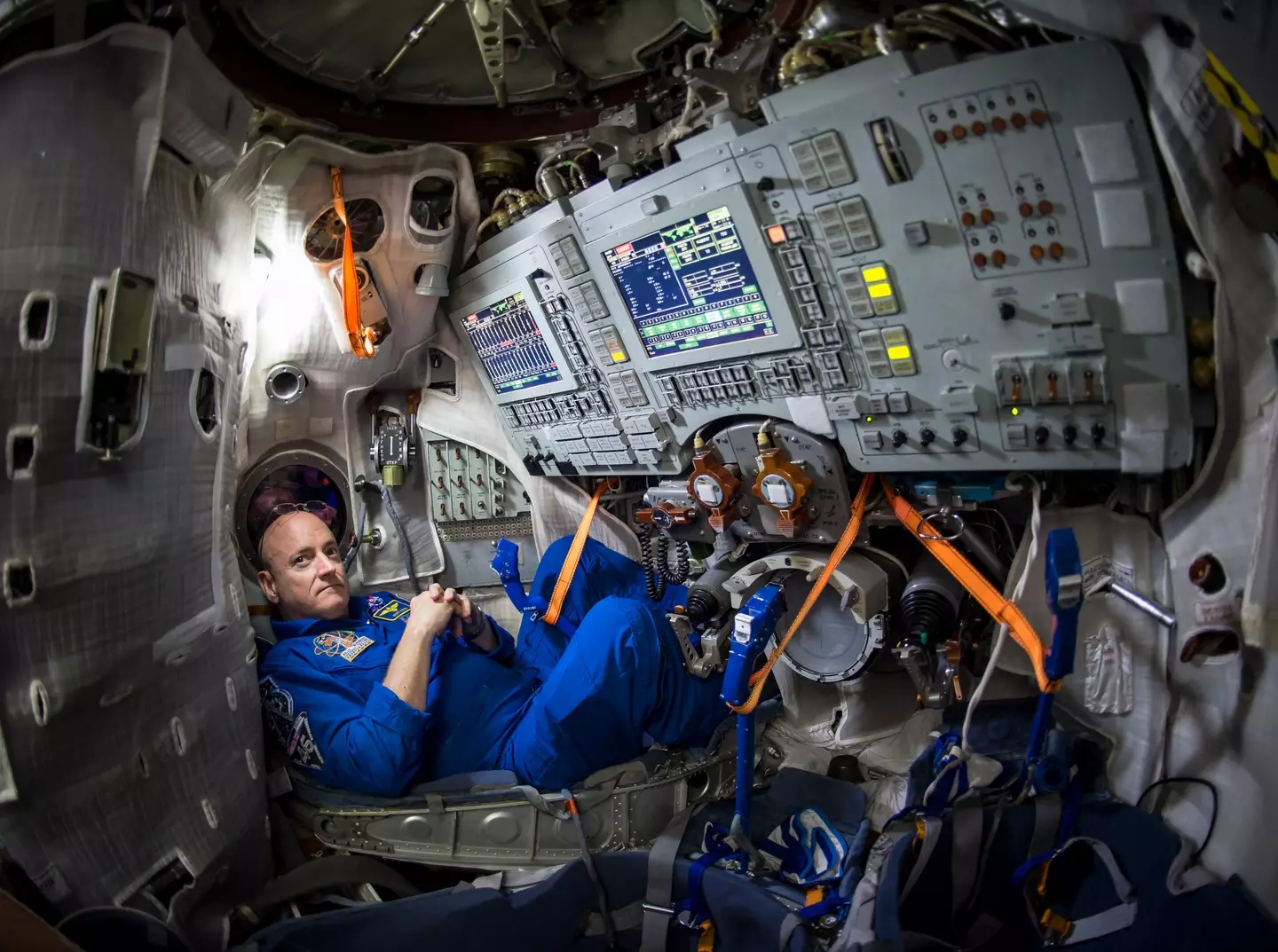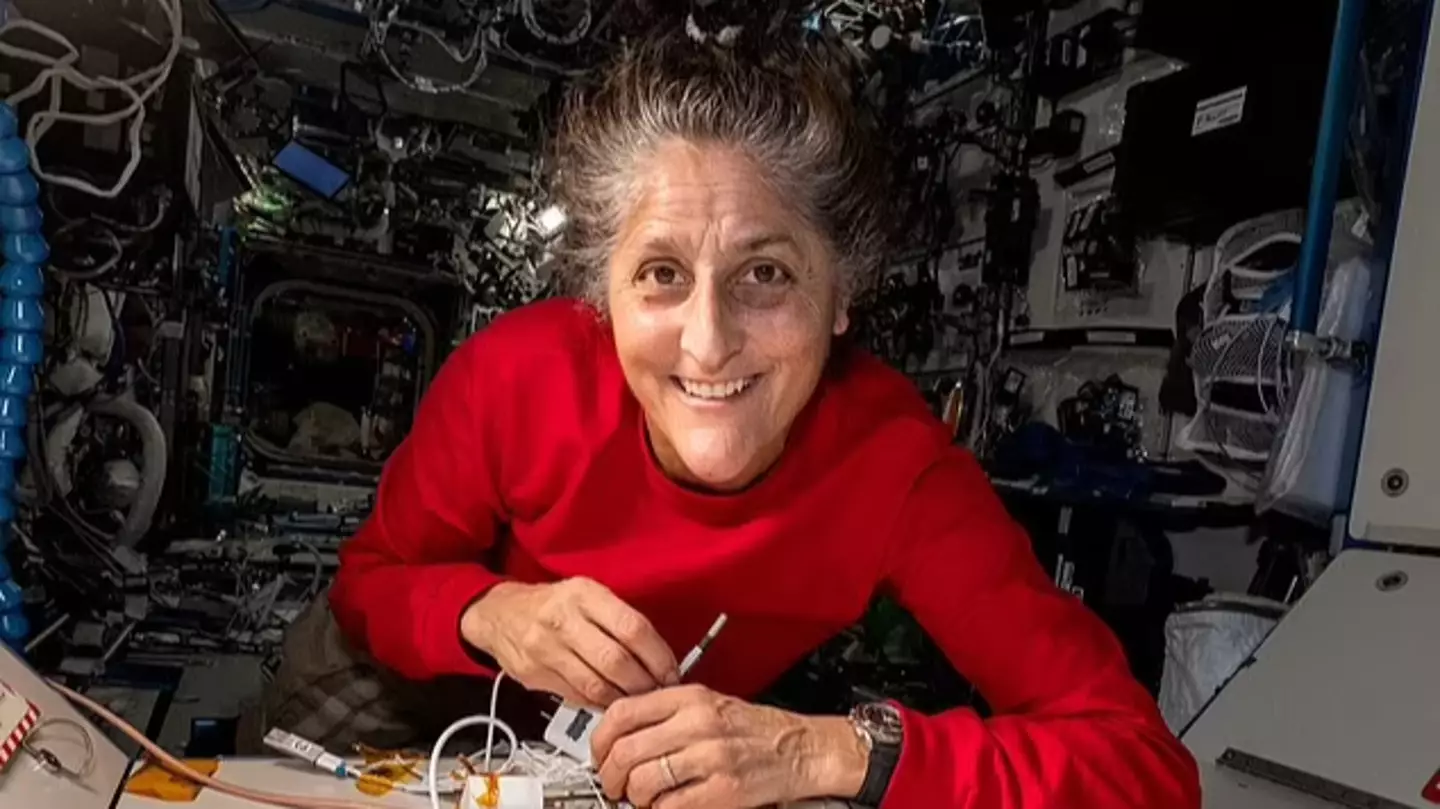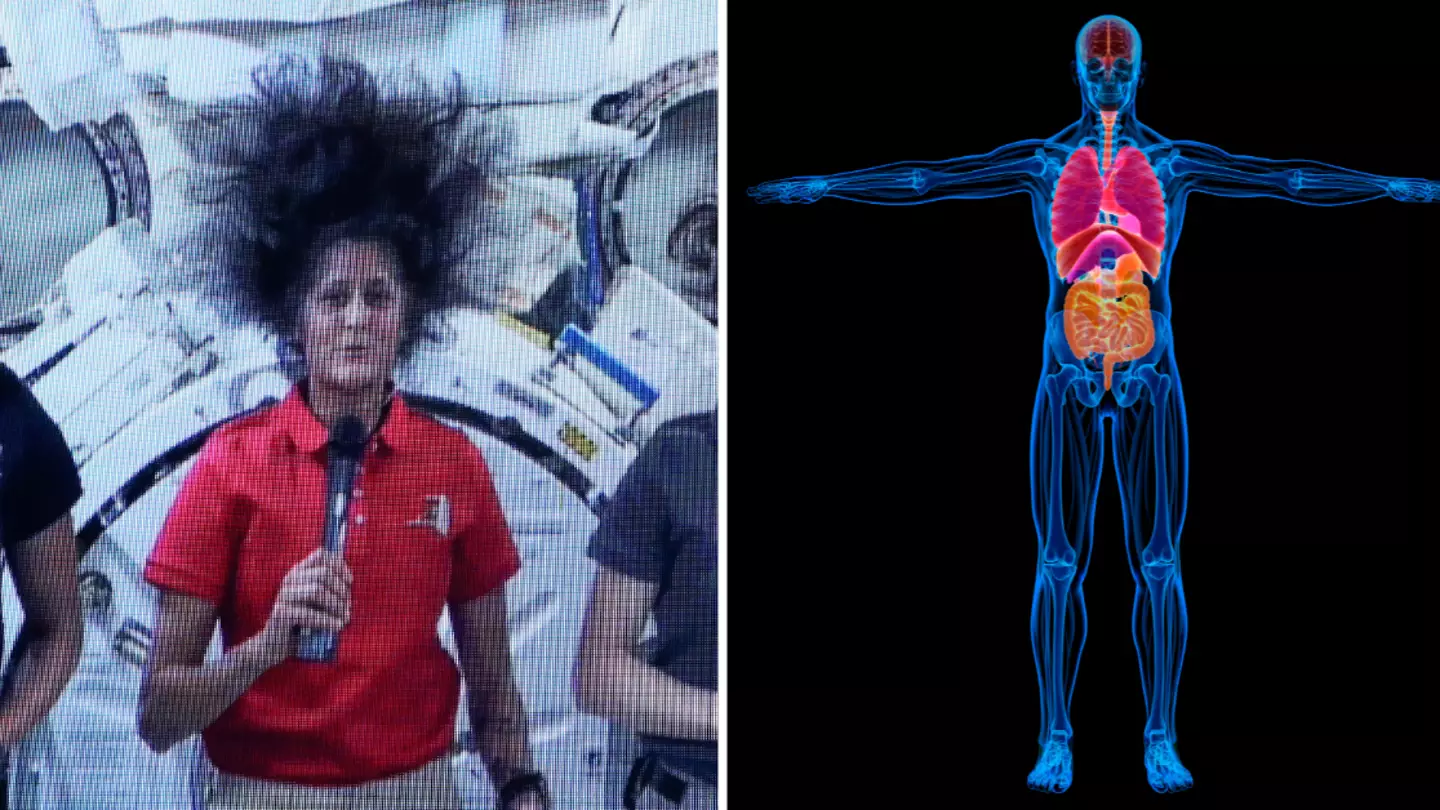With a date now having been set for the rescue mission of the two stranded NASA astronauts, followers of the story have been left wondering how a lengthy stay in space may have affected their bodies.
Sunita Williams and Barry Wilmore have been trapped on board the International Space Station for 251 days in space (and counting) following a botched eight-day mission back in June 2024.
A bout of technical faults - including numerous fuel leaks, helium leaks, five dead manoeuvring thrusters, and a broken propellant valve affected the spacecraft's expendable propulsion system - meant that the pair have been stranded for eight months.
Advert
Several return missions were planned and subsequently cancelled by NASA in the weeks that followed, prompting the firm to reach out to representatives at SpaceX - Elon Musk's space exploration firm.
Following some encouragement from president Donald Trump, the Mail reported last week that NASA have now brought forward SpaceX's rescue mission, with the stranded astronauts now scheduled to be home around March 19.
This is two weeks earlier that the initial estimated return of early April.
Following the news, however, many spectators have been left wondering what else a prolonged period in space might do to the body.
According to the BBC, scientists previously used the case of NASA astronaut and engineer Scott Kelly to investigate the effects caused by a lengthy stay in space, after he returned to Earth in 2016 after 340 days.
During this time, he orbited our planet 5,963 times, and travelled 157.4 million miles before returning home - but what did this do to his body?

Muscles and bones
Microgravity can cause both muscle density and bone mass to decline, with those most affected being the ones that assist in maintaining our posture.
When back, neck, calf and quad muscles aren't used, they begin to atrophy, and have been known to plummet by as much as 20 percent in just two weeks, and by 30 percent between 3-6 months.
On top of this, because astronauts are no longer putting their bodies through mechanical strain in space, their bones can demineralise and weakened, losing around 1-2 percent of their pass per month they spend in space.
The risk of obtaining a fracture also increases in space, along with the length of time it takes to heal.
Weight loss
Microgravity also means that maintaining a healthy weight can be a struggle in space.
Former NASA astronaut Scott Kelly previously took part in a study testing the affects of 370-day space travel, and was found to have lost 7 percent of his body mass whilst in orbit compared to his twin brother, who remained at home.

Eyesight
The process of gravity assisting in blood being pumped around our bodies is slowed down whilst in space, with the blood accumulating in the head more so that it usually would.
Some of this can pool in the region behind the eye, particularly around the optic nerve, and cause an oedema, which affects the sharpness of vision. This risk increases the longer than an astronaut is in space.
Cognitive functions
When Kelly returned to Earth, scientists compared his cognitive performance to that of his twin, finding that it had decreased in the six months after he landed.
It was suggested at the time that his brain had been readjusting to the return of gravity.
Gut health
Upon his return to Earth, it was also found that the previously healthy microorganisms living inside Kelly's body - which had assisted with his digestion, and affected his inflammation and his brain processes - had altered.
This wasn't considered surprising, due to the variation in the types of food he was eating in space, as well as the recycled water he was drinking.
Skin
Kelly's skin was found to have become highly sensitive during his expedition in space, and he endured a six-day rash upon his return.

DNA
When Kelly returned home, it was found that his telomeres - the structures at the end of each strand of DNA that are thought to help protect genes from damage - were shorter in length, compared to his brother's.
It has been suggested that this could have been due to an intricate mix of radiation in space, though an exact explanation hasn't yet been confirmed.
Immune system
Some astronauts have been found to suffer deceases in white blood cell counts in line with radiation whilst in space, despite all having vaccine boosts ahead of their journeys.
